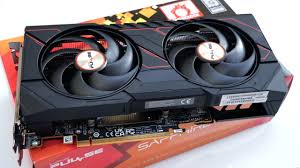The Mobile World Congress (MWC) 2025 is buzzing with cutting-edge tech, and Lenovo has once again stolen the spotlight. Following the rollable laptop concept showcased at CES earlier this year, Lenovo is back with two groundbreaking ThinkBook concepts—the ThinkBook “Codename Flip” and the ThinkBook 3D Laptop—both redefining how we interact with portable computing.
Additionally, the company has introduced refreshed ThinkPad and ThinkBook series laptops equipped with AI-enhanced features. Let’s dive into what makes these innovations stand out.
Table of Contents
Lenovo Pushes Boundaries with Flexible OLEDs, Glassless 3D Displays & AI-Powered Gestures
ThinkBook “Codename Flip”: The Future of Flexible Displays
Lenovo’s ThinkBook “Codename Flip” is a proof-of-concept AI PC featuring a flexible OLED panel that expands from 13 inches to 18.1 inches within seconds. Unlike its rollable predecessor, this device maintains a slim profile with minimal internal machinery, making it a versatile, compact, and highly functional device. The adaptable form factor allows it to be used in multiple modes:
- Traditional Laptop Mode – A standard clamshell setup for everyday productivity.
- Expanded Display Mode – Unfold the large display for seamless multitasking.
- Tent Mode – Ideal for presentations and screen-sharing.
- Tablet Mode – A full-screen, touch-enabled experience for creative workflows.
Smart Forcepad: Reinventing Touch Controls
One of the most intriguing features of the ThinkBook Flip is its Smart Forcepad, a multi-layered illuminated touchpad with customizable controls. This innovation enhances user interaction and flexibility, making it a potential game-changer in the realm of productivity laptops. It allows for gesture-based inputs and haptic feedback, making navigation smoother and more intuitive than ever.
Under the Hood: Power-Packed Performance
The ThinkBook Flip is not just about design; it boasts Intel’s Core Ultra 7 processor, 32GB RAM, PCIe SSD storage, Thunderbolt 4 ports, and a fingerprint scanner. Lenovo has ensured that despite being a concept, this device remains powerful enough to handle professional workloads, gaming, and multitasking without any hiccups.
Additionally, the integration of AI-enhanced computing capabilities makes this laptop a step ahead in terms of smart productivity. The AI optimizations enable intelligent cooling, adaptive performance management, and real-time workflow enhancements that boost efficiency.
ThinkBook 3D Laptop: A Glassless 3D Revolution
Lenovo has also introduced a futuristic ThinkBook 3D laptop, featuring a stunning 3.2K 3D display that doesn’t require glasses. While 3D technology in consumer electronics isn’t new, Lenovo’s implementation takes it to another level, particularly for professionals in design, engineering, and content creation.

How the Glassless 3D Display Works
The 3.2K autostereoscopic display allows users to experience immersive 3D visuals without the need for additional accessories like 3D glasses. This is achieved through eye-tracking technology and depth perception algorithms, which adjust the image dynamically to ensure the perfect perspective for the user. This makes it an ideal device for architects, game designers, filmmakers, and content creators who rely on 3D modeling.
AI Ring: Gesture Control Like Never Before
What truly sets this laptop apart is the AI Ring, an innovative wearable that allows users to manipulate 3D objects using AI-powered gestures—without needing a trackpad or mouse. This futuristic accessory feels like something straight out of Tony Stark’s lab, offering intuitive interaction for designers and engineers working with 3D models and animations.
The AI Ring leverages motion tracking, haptic feedback, and machine learning algorithms to interpret user gestures with high accuracy. This means users can zoom, rotate, and manipulate 3D objects with simple hand movements, making digital sculpting and animation work more fluid and precise.
Seamless 2D-3D Switching
Users can switch between 2D and 3D modes effortlessly, making this laptop practical for both standard computing tasks and immersive visualization experiences. Lenovo has designed this concept with adaptability in mind, ensuring that users can toggle between standard workflows and high-tech 3D modeling without any limitations.
AI-Enhanced ThinkPad & ThinkBook Laptops
Beyond these concept showcases, Lenovo has unveiled a refreshed lineup of AI-powered ThinkPad and ThinkBook laptops, featuring models such as:
- ThinkPad X13 Gen 6
- ThinkPad T14s 2-in-1
- ThinkBook 16p Gen 6
- ThinkPad T and E series updates
- ThinkBook 14 2-in-1 Gen 5
These laptops come equipped with next-gen AI optimizations, improved battery life, and advanced processing capabilities, reinforcing Lenovo’s commitment to future-ready computing.
What’s New in AI Integration?
The latest AI enhancements in Lenovo’s ThinkPad and ThinkBook lineup include:
- AI-Powered Battery Management: Optimizes power consumption based on usage patterns, increasing battery life.
- Real-Time Language Translation: AI-driven speech recognition and translation tools improve global business communication.
- Security Enhancements: AI-driven facial recognition, fingerprint scanning, and adaptive malware protection improve device security.
- Smart Noise Cancellation: Uses AI to filter background noise during video calls, making virtual meetings clearer.
- Dynamic Performance Optimization: AI algorithms adjust system performance in real-time based on workloads.
These improvements make Lenovo’s latest lineup ideal for professionals, students, and remote workers looking for seamless AI-powered experiences.
Lenovo’s Vision for the Future
With its latest ThinkBook concepts, Lenovo continues to push the boundaries of innovation. Whether it’s the foldable OLED display of the ThinkBook Flip or the glassless 3D experience powered by AI Ring, these advancements hint at the future of computing. While still in the concept phase, these technologies could soon become mainstream, revolutionizing workflows, collaboration, and content creation.
Potential Real-World Applications
If commercialized, these concept laptops could significantly impact various industries:
- Graphic Designers & 3D Artists: The ThinkBook 3D laptop could redefine how creative professionals work, offering immersive 3D interactions without the need for expensive external tools.
- Engineers & Architects: The AI Ring’s gesture controls could make 3D modeling and CAD work more interactive and efficient.
- Remote Workers & Professionals: AI-powered features in the latest ThinkPad and ThinkBook models enhance productivity, making work-from-anywhere setups more efficient.
- Education & Training: The ability to interact with 3D objects in real time could transform learning experiences, particularly in medical, architectural, and engineering fields.
Will These Concepts Become Reality?
While these devices are still in their concept stage, Lenovo’s track record suggests that they could see commercial releases in the near future. With continued advancements in AI computing, flexible displays, and gesture recognition, we might soon see these innovations integrated into mainstream products.
One thing is certain—MWC 2025 has proven that Lenovo isn’t just keeping up with trends; it’s defining them.
Would you want to try a foldable laptop or a 3D laptop with AI-powered gesture control? Let us know in the comments!








